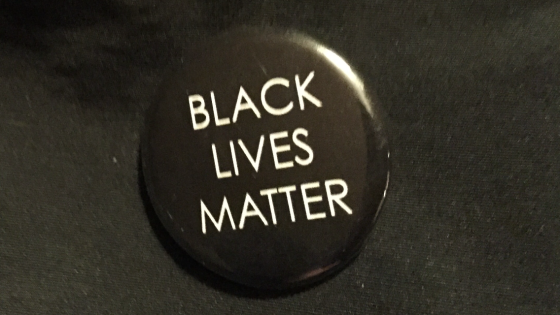
Just over two years ago, after seeing the movie Fruitvale Station, and coincidentally, around the same time, reading the book The New Jim Crow, I wrote a blog post about the importance of seeing the humanity in people, and how that relates to being a leader. (“Be a Leader” is one of the Six Simple Rules for a Better Life.)
Since that time, especially in the last year, the United States has been turned upside down by stories frighteningly similar to that told in Fruitvale Station. You know the names and/or the stories: Michael Brown (Ferguson), Eric Garner (the chokehold), Sandra Bland (the video of unnecessarily escalated police behavior), Christian Taylor (the Texas college student), Samuel Dubose (killed by an officer who has been charged with murder).
Each of these stories has its own nuances and in some cases we will never know the truth of what happened, except for one thing—a black person died at the hands of the police, or while in police custody.
You’ve heard of #BlackLivesMatter. The momentum this movement has gained been amazingly rapid and I pray it helps bring about change as did the civil rights movement of the 1960s.
If you want to understand more about the problem we have, and how we got here, so you can feel the humanity:
- Read The New Jim Crow and learn how the war on drugs led to the mass incarceration of black men.
- Read the very recent book, Between the World and Me by Ta-Nehisi Coates and learn how it feels to have a black body. (You will also find interesting this article about the book.)
- Read The Case for Reparations by Ta-Nehisi Coates.
- Listen to this NPR podcast about school integration.
- Read articles about those who died and imagine how you would feel if someone in your family was killed.
Be sure to also read about some of the good things that are happening:
- The commutation of sentences disproportionate to the crime.
- The bipartisan push to reduce mandatory minimum sentences.
- The attention being paid to the problem with bail.
- The recognition of the need for more communication training for police.
- The promise of programs to keep low-level drug offenders out of jail.
My friend Kevin Clarke recently wrote a piece in America magazine featuring the thoughts of Bishop Edward Braxton of Illinois. Braxton says he cannot say if the numbers of deadly encounters between white police and African American citizens has significantly increased or not (reliable statistics on this possibility have not been maintained by the F.B.I.) But “what has increased is the speed with which the word is spread far and wide and the speed with which opinions are formed, positions are hardened, rage is ignited,” he says, owing to the bane or blessing of today’s social media.
That phenomenon may be distorting social truths, he says, or it could be that it is shining a bright light “on terrible social realities that have been long denied or kept in the shadows.” He goes on to say people are “concluding that there is systemic racial prejudice in American society that is morally wrong,” and he wants people to join in peaceful protest making the simple claim that #BlackLivesMatter.
Yes, there are societal problem that impact all races and it is worth everyone’s while to learn, for instance, how hard it is to break out of the cycle of poverty because all lives matter. But it is once again black lives that needed to create a movement to try to make things better; and the world will be a better place when all of us learn more and become the leaders we can all be.
What are your experiences? Join the conversation with your comments…
Best regards,
David
